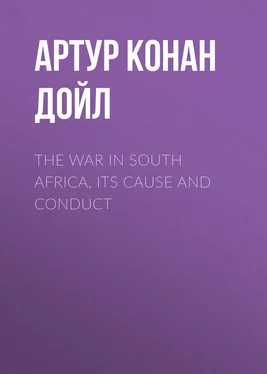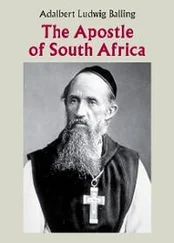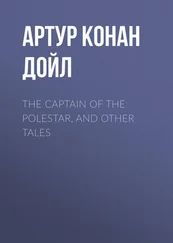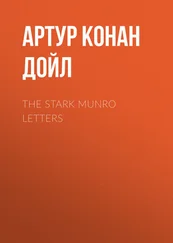Артур Дойл - The War in South Africa, Its Cause and Conduct
Здесь есть возможность читать онлайн «Артур Дойл - The War in South Africa, Its Cause and Conduct» — ознакомительный отрывок электронной книги совершенно бесплатно, а после прочтения отрывка купить полную версию. В некоторых случаях можно слушать аудио, скачать через торрент в формате fb2 и присутствует краткое содержание. Жанр: foreign_antique, foreign_prose, на английском языке. Описание произведения, (предисловие) а так же отзывы посетителей доступны на портале библиотеки ЛибКат.
- Название:The War in South Africa, Its Cause and Conduct
- Автор:
- Жанр:
- Год:неизвестен
- ISBN:нет данных
- Рейтинг книги:5 / 5. Голосов: 1
-
Избранное:Добавить в избранное
- Отзывы:
-
Ваша оценка:
- 100
- 1
- 2
- 3
- 4
- 5
The War in South Africa, Its Cause and Conduct: краткое содержание, описание и аннотация
Предлагаем к чтению аннотацию, описание, краткое содержание или предисловие (зависит от того, что написал сам автор книги «The War in South Africa, Its Cause and Conduct»). Если вы не нашли необходимую информацию о книге — напишите в комментариях, мы постараемся отыскать её.
The War in South Africa, Its Cause and Conduct — читать онлайн ознакомительный отрывок
Ниже представлен текст книги, разбитый по страницам. Система сохранения места последней прочитанной страницы, позволяет с удобством читать онлайн бесплатно книгу «The War in South Africa, Its Cause and Conduct», без необходимости каждый раз заново искать на чём Вы остановились. Поставьте закладку, и сможете в любой момент перейти на страницу, на которой закончили чтение.
Интервал:
Закладка:
Determined attempts have been made to connect the British Government with this fiasco, and to pretend that the Colonial Secretary and other statesmen were cognisant of it. Such an impression has been fostered by the apparent reluctance of the Commission of Inquiry to push their researches to the uttermost. It is much to be regretted that every possible telegram and letter should not have been called for upon that occasion; but the idea that this was not done for fear that Mr. Chamberlain and the British Government would be implicated, becomes absurd in the presence of the fact that the Commission included among its members Sir Henry Campbell-Bannerman and Sir William Harcourt. Is it conceivable that these gentlemen held their hands for fear of damaging the Government, or that Mr. Chamberlain could afterwards have the effrontery to publicly and solemnly deny all knowledge of the business in the presence of gentlemen who had connived at the suppression of the proofs that he did know? Such a supposition is ridiculous, and yet it is involved in the theory that the Commission refrained from pushing their examination because they were afraid of showing their country to have been in the wrong.
Again, even the most embittered enemy of Mr. Chamberlain must admit that he is a clear-headed man, a man of resolution, and a man with some sense of proportion as to the means which should be used for an end. Is such a man, knowing the military record of the burghers, the sort of man to connive at the invasion of their country by 500 policemen and two guns? Would he be likely, even if he approved of the general aim, to sanction such a harebrained piece of folly? And, having sanctioned it, would he be so weak of purpose as to take energetic steps, the instant that he heard of the invasion, to undo that which he is supposed himself to have done, and to cause the failure of his own scheme? Why should he on such a supposition send energetic messages to Johannesburg forbidding the British to co-operate with the raiders? The whole accusation is so absurd that it is only the mania of party spite or of national hatred which could induce anyone to believe it.
Again, supposing for an instant that the British Government knew anything about the coming raid, what is the first and most obvious thing which they would have done? Whether Jameson got safely to Johannesburg or not there was evidently a probability of a great race-struggle in South Africa. Would they not then, on some pretext or another, have increased the strength of the British force in the country, which was so weak that it was powerless to influence the course of events? It is certain that this is so. But nothing of the kind was done.
Mr. Chamberlain's own denial is clear and emphatic:
'I desire to say in the most explicit manner that I had not then, and that I never had, any knowledge, or until, I think it was the day before the actual raid took place, the slightest suspicion of anything in the nature of a hostile or armed invasion of the Transvaal.' – (British South Africa Committee, 1897. Q. 6223.)
The Earl of Selborne, Under-Secretary of State for the Colonies, was no less explicit:
'Neither then nor at any subsequent period prior to the raid did we know of what is now called "Jameson's plan," nor that the revolution at Johannesburg was being largely controlled and financed from Cape Colony and Rhodesia… Sir Hercules Robinson had no suspicion of what was impending, nor apparently President Kruger, nor Mr. Hofmeyr, nor any public man in South Africa, except those who were preparing the plan. At any rate the fact remains that from no quarter did the Colonial Office receive any warning. I submit, therefore, it would have been a most extraordinary thing if any suspicion had occurred to us.'
The finding of the Committee – a Committee composed of men of all parties, some of whom, as we know, were yearning 'to give Joe a fall' – was unanimous in condemning the raid and equally unanimous in exonerating the Government from any knowledge of it. Their Report said:
'Your Committee fully accept the statements of the Secretary of State for the Colonies, and of the Under-Secretary, and entirely exonerate the officials of the Colonial Office of having been in any sense cognisant of the plans which led up to the incursion of Dr. Jameson's force into the South African Republic…
'Neither the Secretary of State for the Colonies, nor any of the officials of the Colonial Office received any information which made them, or should have made them, or any of them, aware of the plot during its development.'
And yet to this day it is one of the articles of faith of a few crack-brained fanatics in this country, and of many ill-informed and prejudiced editors upon the Continent, that the British Government was responsible for the raid.
The Uitlanders have been severely criticised for not having sent out a force to help Jameson in his difficulties, but it is impossible to see how they could have acted in any other manner. They had done all they could to prevent Jameson coming to their relief, and now it was rather unreasonable to suppose that they should relieve their reliever. Indeed, they had an entirely exaggerated idea of the strength of the force which he was bringing, and received the news of his capture with incredulity. When it became confirmed they rose, but in a half-hearted fashion which was not due to want of courage, but to the difficulties of their position. On the one hand the British Government disowned Jameson entirely, and did all it could to discourage the rising; on the other, the President had the raiders in his keeping at Pretoria, and let it be understood that their fate depended upon the behaviour of the Uitlanders. They were led to believe that Jameson would be shot unless they laid down their arms, though, as a matter of fact, Jameson and his people had surrendered upon a promise of quarter. So skilfully did Kruger use his hostages that he succeeded, with the help of the British Commissioner, in getting the thousands of excited Johannesburgers to lay down their arms without bloodshed. Completely out-manœuvred by the astute old President, the leaders of the reform movement used all their influence in the direction of peace, thinking that a general amnesty would follow; but the moment that they and their people were helpless the detectives and armed burghers occupied the town, and sixty of their number were hurried to Pretoria Gaol.
To the raiders themselves the President behaved with generosity. Perhaps he could not find it in his heart to be harsh to the men who had managed to put him in the right and won for him the sympathy of the world. His own illiberal and oppressive treatment of the new-comers was forgotten in the face of this illegal inroad of filibusters. The true issues were so obscured by this intrusion that it has taken years to clear them, and perhaps they will never be wholly cleared. It was forgotten that it was the bad government of the country which was the real cause of the unfortunate raid. From then onwards the government might grow worse and worse, but it was always possible to point to the raid as justifying everything. Were the Uitlanders to have the franchise? How could they expect it after the raid? Would Britain object to the enormous importation of arms and obvious preparations for war? They were only precautions against a second raid. For years the raid stood in the way, not only of all progress, but of all remonstrance. Through an action over which they had no control, and which they had done their best to prevent, the British Government was left with a bad case and a weakened moral authority.
The raiders were sent home, where the rank and file were very properly released, and the chief officers were condemned to terms of imprisonment which certainly did not err upon the side of severity. In the meantime, both President Kruger and his burghers had shown a greater severity to the political prisoners from Johannesburg than to the armed followers of Jameson. The nationality of these prisoners is interesting and suggestive. There were twenty-three Englishmen, sixteen South Africans, nine Scotchmen, six Americans, two Welshmen, one Irishman, one Australian, one Hollander, one Bavarian, one Canadian, one Swiss, and one Turk. The list is sufficient comment upon the assertion that only the British Uitlanders made serious complaints of subjection and injustice. The prisoners were arrested in January, but the trial did not take place until the end of April. All were found guilty of high treason. Mr. Lionel Phillips, Colonel Rhodes (brother of Mr. Cecil Rhodes), George Farrar, and Mr. Hammond, the American engineer, were condemned to death, a sentence which was afterwards commuted to the payment of an enormous fine. The other prisoners were condemned to two years' imprisonment, with a fine of 2,000 l. each. The imprisonment was of the most arduous and trying sort, and was embittered by the harshness of the gaoler, Du Plessis. One of the unfortunate men cut his throat, and several fell seriously ill, the diet and the sanitary conditions being equally unhealthy. At last, at the end of May, all the prisoners but six were released. Four of the six soon followed, two stalwarts, Sampson and Davies, refusing to sign any petition and remaining in prison until they were set free in 1897. Altogether the Transvaal Government received in fines from the reform prisoners the enormous sum of 212,000 l. A certain comic relief was immediately afterwards given to so grave an episode by the presentation of a bill to Great Britain for 1,677,938 l. 3 s. 3 d. – the greater part of which was under the heading of moral and intellectual damage. It is to be feared that even the 3 s. 3 d. remains still unpaid.
Читать дальшеИнтервал:
Закладка:
Похожие книги на «The War in South Africa, Its Cause and Conduct»
Представляем Вашему вниманию похожие книги на «The War in South Africa, Its Cause and Conduct» списком для выбора. Мы отобрали схожую по названию и смыслу литературу в надежде предоставить читателям больше вариантов отыскать новые, интересные, ещё непрочитанные произведения.
Обсуждение, отзывы о книге «The War in South Africa, Its Cause and Conduct» и просто собственные мнения читателей. Оставьте ваши комментарии, напишите, что Вы думаете о произведении, его смысле или главных героях. Укажите что конкретно понравилось, а что нет, и почему Вы так считаете.












